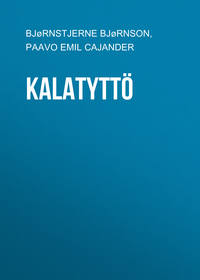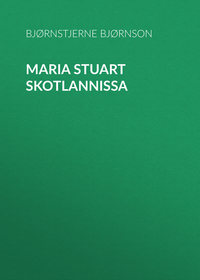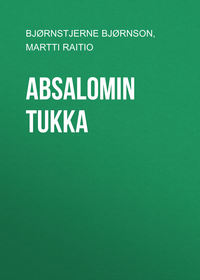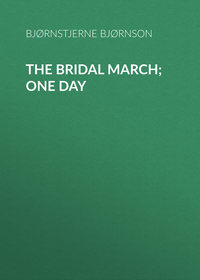 полная версия
полная версияMagnhild; Dust
"Merci, Madame!" said he, making a low bow.
"Kiss the lady's hand!" commanded the old man. The boy obeyed, with shy haste. Then he ran back to the tent, whence was heard the barking of dogs.
Suddenly there arose a commotion in the crowd behind those who were seated. A woman with a child three or four years old in her arms was trying to push her way forward. She could not stand and hold the child forever, she said; she wanted to sit down. She was quite as good as any one else present.
But there seemed to be no seat vacant except on the front bench. So to the front bench she went, to the great sport of the multitude; for she was well known. She was no other than "Machine Martha." Two years before she had come to the Point with a child and a large and a small sewing-machine, with which she supported herself, for she was capable. She had deserted her husband with an itinerant tradesman, who dealt, among other things, in sewing-machines. He had deceived her. Since then she had fallen into wretched habits of drunkenness, and had become thoroughly degraded. Her face was rough and her hair disheveled. Nevertheless, she still seemed to have sufficient energy left to raise a storm. She seated herself directly beside the lady, who shrank away, for Martha smelled strongly of beer.
The old juggler had noticed the involuntary movement the lady made. He was on hand at once, and, in a hoarse, rough voice, ordered Martha to take another place.
She must have been abashed herself by all the silk she had come into contact with, for she now got up and moved away.
As she was watching her Magnhild descried Skarlie. At his side Martha paused. Soon she came forward again. "I will sit there, I tell you," said she, and resuming her seat she placed the child on the bench beside her.
The old juggler left his preparations. He had grown angry. "You cursed" – here he must have remembered the fine company he was in, for he continued: "It costs money to sit here." He spoke Swedish.
"Here is a mark!" said the woman, holding out the coin as she spoke.
"Very well," said he, hoarsely; "but sit on another bench. Will the ladies and gentlemen please move closer together?" he begged of those on the nearest benches. Whether his directions were followed or not, Martha did not stir.
"The devil a bit will I move," said she.
"Let her stay where she is," whispered the lady.
"Not for any sum," replied the gallant old man. "These seats are reserved for the highest aristocracy," and he took hold of the child. But now Martha sprang up like one possessed.
"You Swedish troll!" cried she, "will you let my child alone?"
The crowd burst into stormy shouts of laughter, and encouraged thereby, she continued: "Highest aristocracy? Pshaw! She is a – she, as well as I." The word shall remain unwritten; but Martha looked significantly at the lady. A volley of laughter, and then, as at the word of command, the silence of the grave.
The lady had started up, proud and beautiful. She looked around for her escort. She wished to leave. Tande was standing not very far off, with a couple of travelers, who had begged to be presented to the well-known composer. The lady's flaming eyes met his. He gazed back at her intently. Every one was looking at him. But no one could penetrate his gaze, any farther than they could have penetrated a polished steel ball.
And yet, however unfathomable those eyes, there was one thing they said plainly enough: "Madame, I know you not!" And his refined, arched brow, his delicately-chiseled nose, his tightly-compressed lips, his hollow cheeks, aye, the glittering diamond studs in his shirt, the aristocratic elegance of his attire, all said, "Touch me not!" Over his eyes were drawn veil after veil.
It was all the work of a moment. The lady turned to Magnhild as though to call on her to bear witness. And yet no! There was no one in the world beside him and herself who could know how great was the offering that now was burnt, how great the love he now flung from him.
Again the lady turned toward him a look, as brief as a flash of lightning. What indignation, what a great cry of anguish, what a swarm of memories, what pride, what contempt, did she not hurl at him. Magnhild received the quivering remains as she turned to her to – aye, what should she do now? Her face suddenly betrayed the most piteous forlornness, and at the same time a touching appeal, as that of a child. The tears rolled down her cheeks. Magnhild, entering completely into her mood, impulsively held out her hand. The lady grasped it and pressed it so vehemently that Magnhild had to exercise all her self-control not to scream aloud. The poor, wounded, repulsed woman gathered together all her inward strength through this outward expenditure of force, and thus she became uplifted. For at the same time she smiled. And lo! across that part of the square where the tight rope was stretched and where spectators were forbidden to intrude, there strode at this moment two officers, seen by all; but how could admittance be refused to a general's cap? And such a one was worn by the all-powerful individual who, with long strides and wide-swinging arms, as though he were himself both commander and army, advanced with his adjutant on the left flank. Already from afar he saluted, in the most respectful manner, his captain's beautiful wife. She hastened to meet her deliverer. On the general's arm she was led back to her place, while he himself took a seat by her side. The adjutant fell to Magnhild's lot, after the lady had introduced them. The general stole many a glance at Magnhild, and the adjutant was all courtesy. This was almost the only thing Magnhild noticed. She was quivering in every nerve.
The lady sparkled with wit, sprightliness, beauty. But every now and then she would seize Magnhild's hand, and press it with remorseless energy. She strengthened herself in the reality of the moment. The bodily pain this caused Magnhild corresponded with the spiritual pain she experienced. She heard the adjutant at her side and Magda cry out in wonder. She, too, now saw several balls glittering in the air, and she saw a large one weighed by a spectator, and then cast into the air by the old athlete, as though it were a play ball, and caught again on his arm, shoulder, or breast; but at the same time she heard the lady tell the general that she would leave the next morning under his escort; she had been waiting for him since her husband could not come.
Magnhild well knew that all was now over: but would the end come as soon as the next morning? A loud outcry, coming chiefly from the voices of boys, cut through her pain. The old man had thrown the large ball into the air with both hands, and then quite a small ball, and continued to keep them in rapid motion for some time. To Magnhild the small ball represented herself; and the large one – ? It was not in order to search for an adequate symbol, nor did she apply it, but everything became symbolic. The perpetual glitter of the balls in the air represented to her the icy glance which had just made her tremble.
"The old man is extraordinarily strong," said the adjutant. "I once saw a man in Venice with another man standing on his shoulders, who stooped and raised a third, and he worked his way up and stood on the second man's shoulders, and then, only think, they drew up a fourth, who managed to stand on the shoulders of the third. The first man walked about on the ground, carrying with him the other three, while the upper man played with balls."
"Were I to die at this moment," the lady was saying on the other side, "and the soul could forget everything here and have imparted to it a new series of wonderful problems, infinite vistas, so that enraptured discovery after discovery might be made – what could there be more glorious?"
"My imagination does not carry me so far," came in the general's firm voice. "I am ready to stake my life that to live and die in the fulfillment of one's duty is the greatest happiness a healthily organized human being can feel. The rest is, after all, of little consequence."
Here Magnhild received a feverish pressure of the hand.
"Applaud, ladies and gentlemen, applaud," said the clown, hoarsely and good-naturedly. This raised a laugh, but no one stirred.
"Why do not the dogs come out?" asked Magda, who heard the animals impatiently barking in the tent.
About the mountain peaks clouds crisped and curled; a gust of wind betokened a change in the weather; the fjord darkened under the influence of a swiftly rising squall. There was something infinitely sublime in the landscape; something awe-inspiring.
It began to grow cold. The people in the background felt hushed and gloomy. Now the clown's wife came forward; she was to go on the tight rope. The haggard, faded beauty wore a dress cut very low in the neck, and with short sleeves. The lady shivered as she looked at her, complained of cold feet, and rose. The general, the adjutant, and consequently Magnhild also, did the same; Magda alone, with looks of entreaty, kept her seat; she was waiting for the dogs. A single glance from her mother sufficed; she got up without a word.
They passed out the same way the officers had come in; not one of them looked back. The lady laughed her most ringing laugh; its pleasant tones rolled back over the assembled multitude. Every one gazed after her. The general walked rapidly, so that her light, easy movements appeared well at his side. The general's height invested hers with a peculiar charm; his stiff, martial bearing and figure heightened the effect of her pliant grace. The contrasts of color in her attire, the feather in her hat, an impression from her laughter, affected one man in the audience as he might have been affected by withdrawing music.
When the officers took their leave at the lady's door, she did not speak a word to Magnhild; she did not so much as glance at her as she went into the house. Magnhild felt her sympathy repulsed. Deeply grieved, she crossed the street to her own house.
Tande returned late. Magnhild heard him walking back and forth, back and forth, more rapidly than ever before. Those light steps kept repeating: "Touch me not!" at last in rhythm; the glitter of the diamond studs, the aristocratic elegance of the attire, the deep reserve of the countenance, haunted her. The lady's anguish groaned beneath these footsteps. What must not she be enduring? "That amidst the thunder and lightning of her suffering she should think of me," thought Magnhild, "would be unnatural." In the first moment of terror she had sought refuge with her young friend, as beneath a sheltering roof, but immediately afterward all was, of course, forgotten.
Some one came into the hall. Was it a message from the lady? No, it was Skarlie. Magnhild well knew his triple time step. He gave her a searching glance as he entered. "It is about time for me to be off," said he. He was all friendliness, and began to gather together his things.
"Have you been waiting for a conveyance?" asked she.
"No, but for the meat I ordered and had to go without the last time; it came a little while ago."
She said no more, and Skarlie was soon ready.
"Good-by, until I come again!" said he. He had taken up his things, and now stood looking at her.
"Skarlie," said she, "was it you who gave Machine Martha that mark?"
He blinked at her several times, and finally asked: "What harm was there in that, my dear?"
Magnhild grew pale.
"I have often despised you," said she, "but never so much as at this moment."
She turned, went into her bed-room and bolted the door. She heard Skarlie go. Then she threw herself on the bed.
A few bars were struck on the piano above, but no more followed; Tande was probably himself startled at the sound. These bars involuntarily made Magnhild pause. Now she was forced to follow the steps which began afresh. A new tinge of the mysterious, the incomprehensible, had fallen over Tande. She was afraid of him. Before this, she had trembled when he was near at hand; now a thrill ran through her when she merely thought of him.
The steps above ceased, and she glided from the unfathomable to Skarlie; for here she was clear. How she hated him! And when she thought that in a fortnight he would come again and act as though nothing had occurred, she clinched her hands in rage and opened them again; for as it had been a hundred times before, so it would be again. She would forget, because he was so good-natured, and let her have her own way.
A profound sorrow at her own insufficiency fell like the pall of night on her fancy. She burst into tears. She was unable to cope with one of the relations of life, either those of others or her own; unable to grasp any saving resolution. Indeed, what could this be?
The steps began again, swifter, lighter than ever. Once more Magnhild experienced that inexplicable, not unpleasant tremor Tande had caused in her before.
It had finally grown dark. She rose and went into the next room. At the cottage opposite there was light, and the curtains were down. Magnhild also struck a light. Scarcely had she done so when she heard steps in the hall, and some one knocked at her door. She listened; there came another rap. She went to the door. It was a message from the lady for Magnhild to come to her. She put out the light and obeyed the summons.
She found everything changed. All around stood open, already-packed chests, trunks, boxes, and traveling satchels; Magda lay sleeping on her own little hamper. A hired woman was assisting the maid in putting the room in order. The maid started up saying: "My lady has just gone into her bed-room. I will announce you."
Magnhild knocked at the door, then entered the chamber.
The lady lay on her couch, behind white bed curtains, in a lace-trimmed night-dress. She had wound about her head the Turkish kerchief which was inseparably associated with her headaches. The lamp stood a little in the background, with a shade of soft, fluttering red paper over it. She was leaning on one elbow which was buried deep in the pillow, and she languidly extended the free left hand; a weary, agonized gaze followed. How beautiful she was! Magnhild was hers again, hers so completely that she flung herself over her and wept. As though under the influence of an electric shock the sick woman sat up and casting both arms about Magnhild pressed her to her own warm, throbbing form. She wanted to appropriate all this comprehension and sympathy. "Thanks!" she whispered over Magnhild. Her despair quivered through every nerve of her body. Gradually her arms relaxed and Magnhild rose. Then the lady sank back among the pillows and begged Magnhild to fetch a chair and sit by her.
"The walls have ears," she whispered, pointing to the door. Magnhild brought the chair. "No, here on the bed," said the lady, making room beside her.
The chair was set aside again. The lady took Magnhild's hand and held it in both of hers. Magnhild gazed into her eyes, which were still full of tears. How good, how true, how full of comprehension she looked! Magnhild bent down and kissed her. The lips were languid.
"I sent for you, Magnhild," said she, softly. "I have something to say to you. Be not afraid," – a warm pressure of the hand accompanied these words; "it is not my own history – and it shall be very brief; for I feel the need of being alone." Here the tears rolled down over her cheeks. She was aware of it and smiled.
"You are married – I do not understand how, and I do not wish to know!" A tremor ran through her and she paused. She turned her head aside for a moment. Presently she continued: "Do not attempt" – but she got no farther; she drew away both hands, covered her face, and flinging herself round, wept in the pillow. Magnhild saw the convulsive quivering of back and arms, and she rose.
"How stupid that was of me," she heard at last; the lady had turned round again, and now bathed eyes and brow with an essence which filled the room with perfume. "I have no advice to give you – besides, of what use would it be? Sit down again!" Magnhild sat down. The lady laid aside the phial and took Magnhild's hand in both of hers. She patted and stroked it, while a long, searching gaze followed. "Do you know that you are the cause of what happened to-day?" Magnhild flushed as though she were standing before a great fire; she tried to rise, but the lady held her fast. "Be still, my child! I have read his thoughts when we were together. You are pure and fine – and I – !" She closed her eyes and lay as still as though she were dead. Not a sound was heard, until at last the lady drew a long, long breath, and looked up with a gaze so full of suffering!
Magnhild heard the beating of her own heart; she dared not stir; she suppressed even her breathing. She felt cold drops of moisture start from every pore.
"Yes, yes, Magnhild; – be now on your guard!"
Magnhild started up. The lady turned her head after her. "Be not proud!" said she.
"Is there any place where you can now go?" Magnhild did not hear what she said. The lady repeated her question as calmly as she had spoken before. "Is there any place where you can now go? Answer me!"
Magnhild could scarcely collect her thoughts, but she answered: "Yes," merely out of accustomed acquiescence to the lady. She did not think of any special place of refuge, only that she must go away from here now, at once. But before she could move, the lady, who had been watching her closely, said, —
"I will tell you one thing that you do not know: you love him."
Magnhild drew back, swift as lightning, her eyes firmly fixed on hers. There arose a brief conflict, in which the lady's eyes, as it were, breathed upon Magnhild's. Magnhild grew confused, colored, and bowed her head on her hands. The lady sat up and took hold of her arm. Magnhild still resisted; her bosom heaved – she tottered, as though seeking support; and finally leaned aside toward where she felt the pressure of the lady's hand.
Then throwing herself on the lady's bosom she wept violently.
CHAPTER VIII
While he was still in bed the next morning there was brought to Tande by the sailor's wife a letter. It had a dainty, old-fashioned, somewhat yellow, glazed envelope, and the address was written in an unpracticed lady's hand, with delicate characters, of which those extending below the lines terminated in a little superfluous flourish, as if afraid of being round and yet with a strong tendency to become so.
"From whom can this be?" thought Tande.
He opened the letter. It was signed "Magnhild." A warm glow ran through him, and he read: —
Hr. H. Tande, – I thank you very much for your kindness to me, and for the instruction you have so generously given me. My husband has said that you have no room-rent to pay.
I am obliged to go away without waiting for an opportunity to tell you of this. Once more my best thanks.
Magnhild.He read the letter through at least five times. Then he studied each word, each character. This epistle had cost fully ten rough sketches and discarded copies; he was sure of it. The word "Magnhild" was written with more skill than the rest; the writer must have had frequent practice in that early in life.
But with such trifling discoveries Tande could not silence the terrible accusation that stared at him from this letter. He lay still a long time after letting the letter drop from his hands.
Presently he began to drum on the sheet with the fingers of his right hand; he was playing the soprano part of a melody. Had it reached the piano, and had Magnhild heard it, she would surely have recognized it.
Suddenly Tande sprang out of bed and into the adjoining room. Stationing himself behind the curtain he took a cautious survey of the opposite house. Quite right: the windows were all open, two women were at work cleaning; the house was empty. Tande paced the floor and whistled. He walked until he was chilled through. Then he began to dress. It usually took him an hour to make his toilet, during which he went from time to time to the piano. To-day he required two hours, and yet he did not once go near the piano.
In the forenoon he took a long walk, but not to the spots they had all visited together. During this walk what had occurred began to assume a shape which made him feel less guilty than he had felt at first. The next day he scarcely felt that he was in the least to blame. Toward evening of the third day his conscience began again to trouble him; but on the following morning he rose from his couch ready to smile over the whole affair.
The first day he had twice commenced a letter to Magnhild but had torn up each effort. On the fourth day he found, instead of the attempted letter, a musical theme. This was capable of being developed into a complex, richly harmonized composition, full of magnificent unrest. Several bars of the simple, refined melody which had conjured up for Magnhild dreams of her childhood might be sprinkled through it. Could not the two motives be brought into conflict?
But as he failed to succeed to his satisfaction, Tande concluded that neither at this place nor it this time could it be accomplished. He remained at the Point one week longer, and then packing up his things he departed. The piano he left behind him, and the key with it. He set forth for Germany.
CHAPTER IX
About five years had elapsed when one Sunday evening in spring, a party of young girls passed up the one large street of the coast town. They were walking arm in arm, and their numbers were continually increased; for the girls were singing a three part song as they went along.
In front of the saddler's house (which, by the way, was now without either sign-board or shop) they slackened their speed, as though they especially desired their singing to be heard here. Perhaps they also expected to see a face at one of the low windows; but they saw none and soon moved onward.
When the last of the party had disappeared, a woman rose from the large chair in the corner. She was scarcely more than half dressed, had down-trodden slippers and disheveled hair. As she knew that no one lived opposite and saw no one in the street, she ventured to approach the window, and resting her arm on the sash she bowed her head in her hand and became absorbed in thought. And as she stood thus she dreamily listened to the harmonies which ever and anon floated back to her.
This chorus was a reminder that Magnhild had once loved song and had believed that in it she had found her vocation. It was she who stood there, and who although, it was Sunday, or perhaps just because it was Sunday, had not thought it worth while to dress herself; it was six o'clock in the afternoon.
She was roused by the rattling of carriage-wheels from another direction. The steamer must have arrived. So accustomed was she to this one break in the desert-stillness of the town, that she forgot she was not dressed, and looked out to see who was coming. It proved to be two ladies; one with a child in her arms and a sunshade; the other with a fluttering veil, bright, eager eyes and a full face. She wore a Scotch plaid traveling suit, and as the carriage drove rapidly past she nodded to Magnhild, the travel-bronzed face all beaming; later she turned and waved her gloved hand.
Who in all the world could this be? In her surprise, which with her always gave place to embarrassment, Magnhild had drawn back into the room. Who could it be?
There was something familiar that was struggling in vain for the supremacy when the lady came running back toward the house. She moved on briskly in her light traveling costume, and now springing up the steps she soon stood in the door that was thrown open to receive her. She and Magnhild looked at each other for a moment.
"Do you not know me?" asked the elegant lady, in the broadest dialect of the parish.
"Rönnaug?"
"Yes, of course!"
And then they embraced.
"My dear! I am here solely on your account. I want to tell you that all these years I have been looking forward to this moment. My dear Magnhild!"
She spoke an intermixture of three languages: English, the dialect of the parish, and a little of the common book language of Norway.
"I have been trying to speak Norse only a couple of months, and do not succeed very well yet."
Her countenance had developed: the eyes glowed with more warmth than of yore; the full lips had acquired facility in expressing every varied shade of humor, friendliness, and will. Her form was even more voluptuous than it had formerly been, but her rapid movements and the elegant traveling suit she wore softened the effect. Her broad hands, which bore the impress of her working days, closed warmly about Magnhild's hand, and soon they were sitting side by side while Rönnaug told her strange experiences of the past four or five years. She had not wanted to write about them, for no one would have believed her story if she had. The reason why she had not kept her promise to write immediately upon reaching her journey's end was simply because even during the voyage she had risen from the steerage to the first cabin, and what had caused this promotion would have been misinterpreted.









